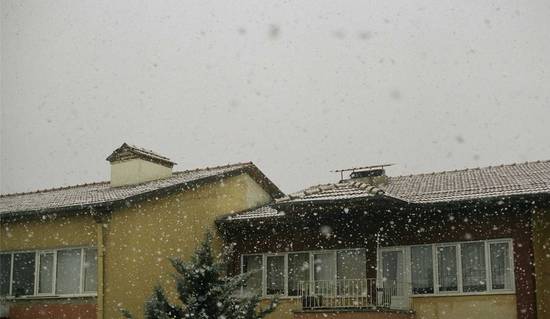
When the chill of winter starts setting in, many of us hesitate to reach for the thermostat. As eager as we are to transform our homes into cosy, warm sanctuaries, we put off using our heating to avoid higher bills.
The pursuit of comfort is a natural instinct, but heating your home is about more than simply creating a toasty atmosphere and staying warm. So why is heating your home properly so important? And how can you do it without breaking the bank? Let’s find out.
Besides comfort, the main reasons for keeping your home warm involve your well-being and protecting your property.
Neglecting to heat your home properly can lead to many complications that affect your health, safety, and even your finances…
One of the most critical reasons to keep your home heated adequately is the impact on your health. Cold indoor temperatures can have severe consequences for individuals of all ages, particularly for the very young, the elderly, and those with pre-existing health conditions. Insufficient heating can lead to:
Letting your home get too cold can lead to various issues that affect your home's structural integrity and may require repairs…
Inadequate heating can create safety hazards that put you and your household at risk:
Heating your home efficiently is not only beneficial for your comfort but also for your wallet. Failing to do so can actually result in higher energy bills and unnecessary expenses. Some common complications include:
Failing to heat your home properly can have long-term consequences for your property's value and resale potential. Homes with issues caused by a lack of heating will be less attractive to potential buyers. Ensuring your home is adequately heated can help maintain or increase its value and make it more appealing to prospective buyers.
One of the first steps in efficient home heating is ensuring your heating system operates at its best. Here are some tips to optimise your heating system:
Regular Maintenance: Schedule annual maintenance for your heating system. This includes cleaning or replacing filters, checking for leaks, and inspecting components for wear and tear.
Upgrade to High-Efficiency Equipment: If your heating system is outdated, consider investing in a high-efficiency model, which can significantly reduce energy consumption.
Programmable Thermostat: Install a programmable thermostat to set different temperature levels for various times of the day. Lower the temperature when you're not at home or while sleeping to save on heating costs.
Zone Heating: Use zone heating to focus warmth in the areas of your home where you spend the most time. This reduces the need to heat the entire house.
If you need help with any of the above, our gas and heating experts can perform repairs, install new appliances, and check your appliances for any safety issues.
Proper Insulation and Sealing: Effective insulation and sealing are essential for retaining heat and preventing energy waste. Here's what you can do:
Seal Leaks: Inspect doors, windows, and any other openings for drafts. Seal gaps and cracks with weatherstripping, caulking, or door sweeps to prevent warm air from escaping and cold air from entering.
Upgrade Insulation: Ensure your home's insulation is up to modern standards. Proper insulation in walls, roofs, and floors can significantly reduce heat loss. Windows are very important to consider when it comes to insulation. If your windows need repairs, our glazing team can help.
Window Coverings: Use curtains, blinds, or drapes to trap heat inside your home during the night and keep the cold out.
In combination with insulation and sealing, you should also make sure your home's ventilation system is set to allow a controlled exchange of indoor and outdoor air. Adjust ventilation to meet your indoor air quality needs without excessive heat loss. Getting fresh air and ventilation is important for your health, as well as reducing the risk of things like mould growth.
Harnessing natural sources of heat is a cost-effective way to warm your home efficiently. Open curtains during the day to allow sunlight to naturally heat your home.
Simple daily habits can make a big difference in efficient home heating:
Regular Cleaning: Keep your heating system clean by dusting and vacuuming vents, radiators, and registers. Clean systems operate more efficiently.
Dress Warmly: Wear warm clothing indoors, allowing you to keep the thermostat a bit lower.
Close Unused Rooms: Seal off unused rooms to prevent heat loss.
Cook and Bake: When you use your oven for cooking or baking, the residual heat can help warm your kitchen and surrounding areas. See if you can take advantage of that.
Avoid Obstructing Radiators: Arrange furniture and curtains to allow warm air to circulate freely from radiators and vents.
Efficient home heating not only ensures your comfort during the colder months but also helps you reduce energy costs, prevent severe maintenance issues, stay healthy and has the extra bonus of minimising your home’s environmental impact.
With our expertise in 7 different trades, we can help you to maintain a comfortable and efficient home. Whether it’s glazing or heating professionals you need, just give us a call on 0330 108 4111